Covid-19: 'In all our hands to reduce infections', says Prof Ian Young
- Published
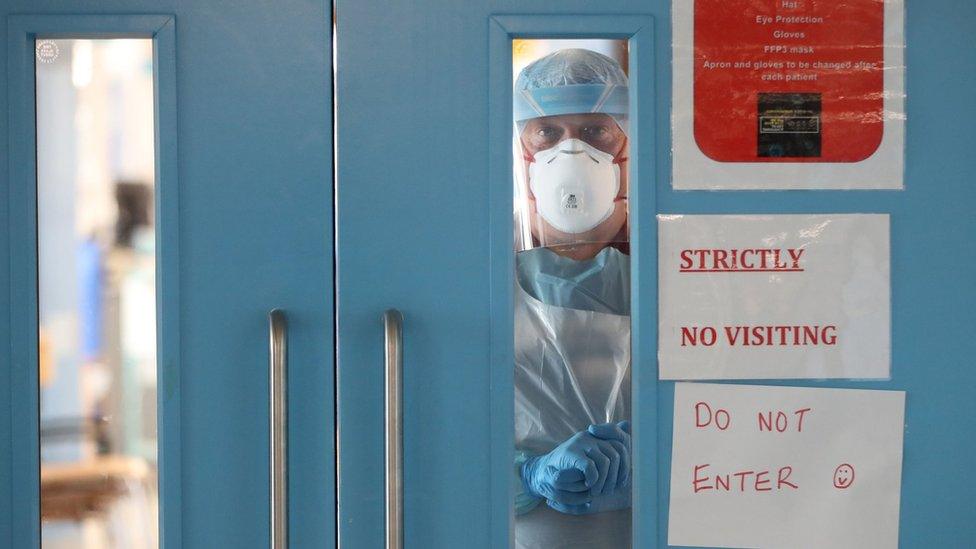
It is "in all of our hands" to reduce Covid-19 infections as health service pressures increase, Northern Ireland's chief scientific adviser has said.
Prof Ian Young said the booster vaccination programme is "going to be really important" through the winter.
It comes as concerns grow around the impact of a new Covid-19 variant, "Delta Plus".
Earlier, a consultant said he has never witnessed the current hospital pressures in his 20-year career.
Northern Ireland has reached "a steady state with really quite high levels of Covid in the community" of about 475 cases per 100,000 population per seven days, Prof Young told BBC News NI.
He said this had created "very considerable pressures" on hospitals with more than one hospital bed in 10 and about one in three intensive care beds occupied by a Covid-19 patient.
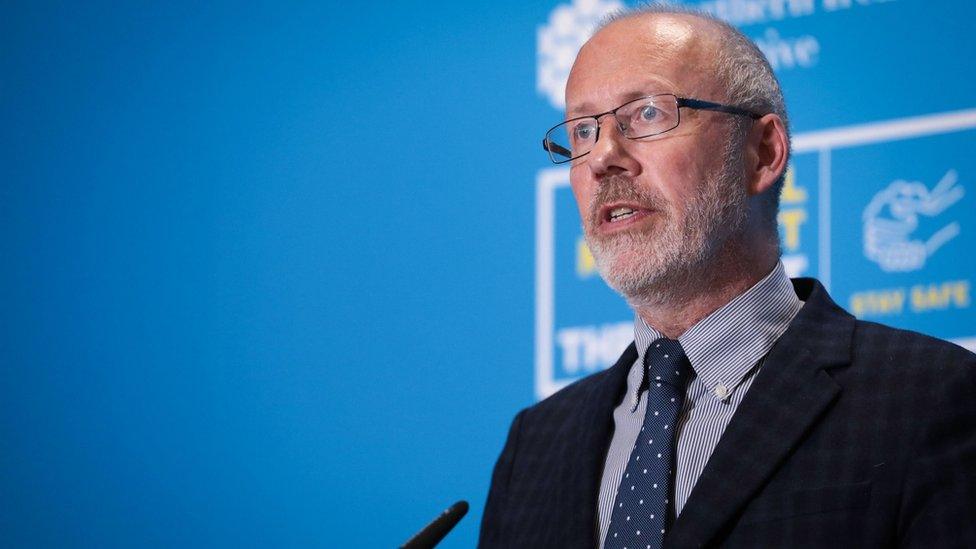
Prof Young said the path followed "is in all of our hands"
"We are seeing some loss of immunity for people who have had Covid previously and for people who have been vaccinated," said Prof Young.
While there is a lot of uncertainty around what things will look like moving into the winter, Prof Young said it was possible to do modelling looking at a range of scenarios.
"Some of those scenarios would look really quite bad with much higher levels of virus than at present," he said.
"Some would look around the current level or a bit lower.
"Which path we follow really is in all of our hands.
"The ways in which we behave as we move through the winter, the uptake of vaccines those are the things that will matter."
'Not a place we want to be'
Earlier, senior hospital consultant David Farren said winter viruses will place additional pressure on the health service.
Dr Farren is a consultant in infection prevention and control at the Northern Health Trust.
"What we've had for the last 18 months, to be perfectly honest, are pressures that I have never seen in the health service in 20 years of being a doctor," he told BBC News NI.
"Sitting this morning, we have 101 people across our ED's (emergency departments) waiting to be seen and 64 awaiting admission.
"Those aren't small numbers."
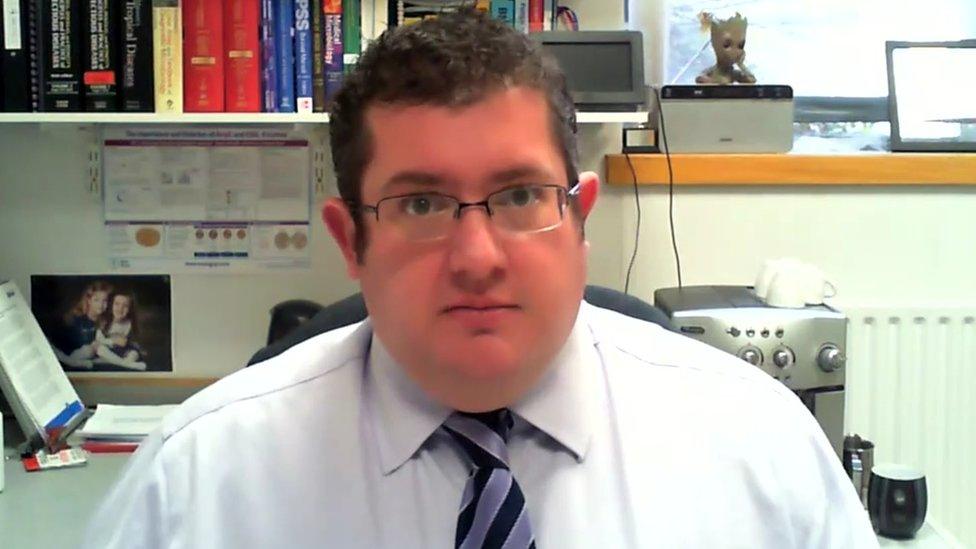
Dr Farren urged people to show "common sense" in observing social distancing and in the wearing of face masks
Dr Farren said it is "not a place we want to be at this stage", adding "we haven't yet had the start of the flu season".
"What we could be seeing coming down the tracks is exceptional pressures on hospitals, the likes of which we've never seen and we will be unable to provide healthcare in the way we have provided it in the past.
"People will not get into hospital to get the procedures they require or get the treatments that they require."
Dr Farren is urging people to continue to show "common sense" in observing social distancing and wearing face masks, as well as to get fully vaccinated.
"If we all do this we will help flatten the curve, we will release the pressure on the health service and you'll give us a better chance of being able to provide the care to the patients in Northern Ireland that they deserve," he said.
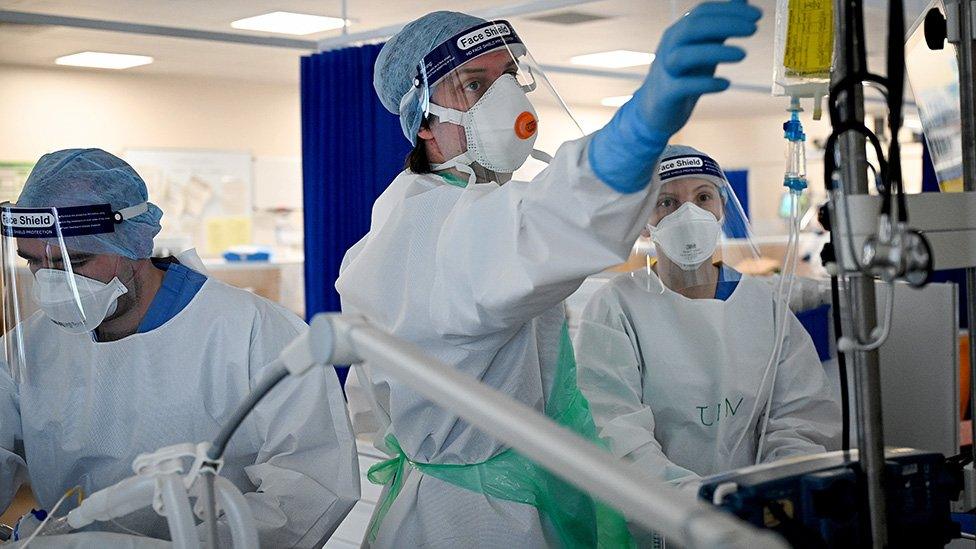
Delta Plus is adding "an extra layer of risk", according to Dr Farren
Extra care is required as the new Delta Plus variant is more transmissible, according to Dr Farren.
It is causing a growing number of infections in the UK and tests are under way to understand how much of a threat it may pose.
Experts say it is unlikely to take off in a big way or escape current vaccines.
Prof Young said while it was growing in incidence in England, Delta Plus was not being seen to any significant extent yet in Northern Ireland.
Related topics
- Published19 October 2021
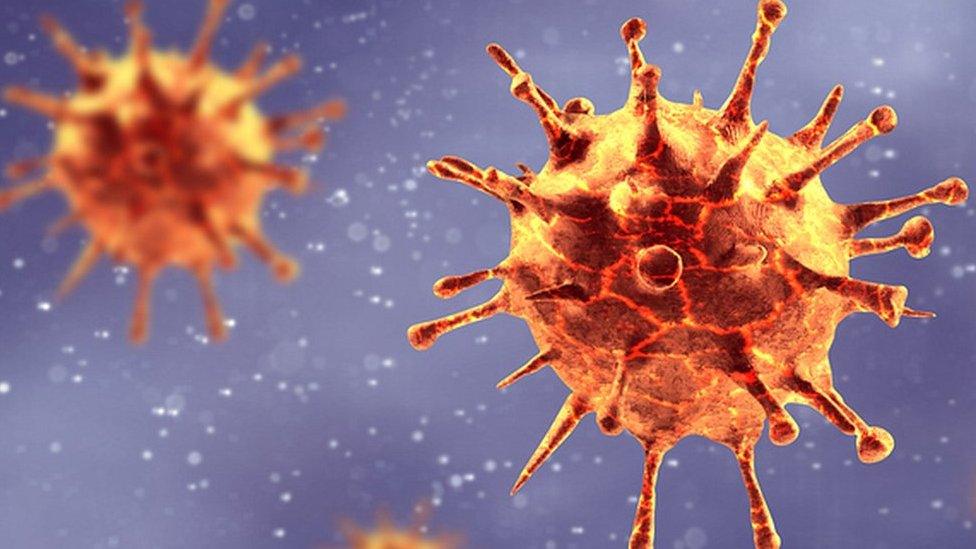
- Published21 September 2021
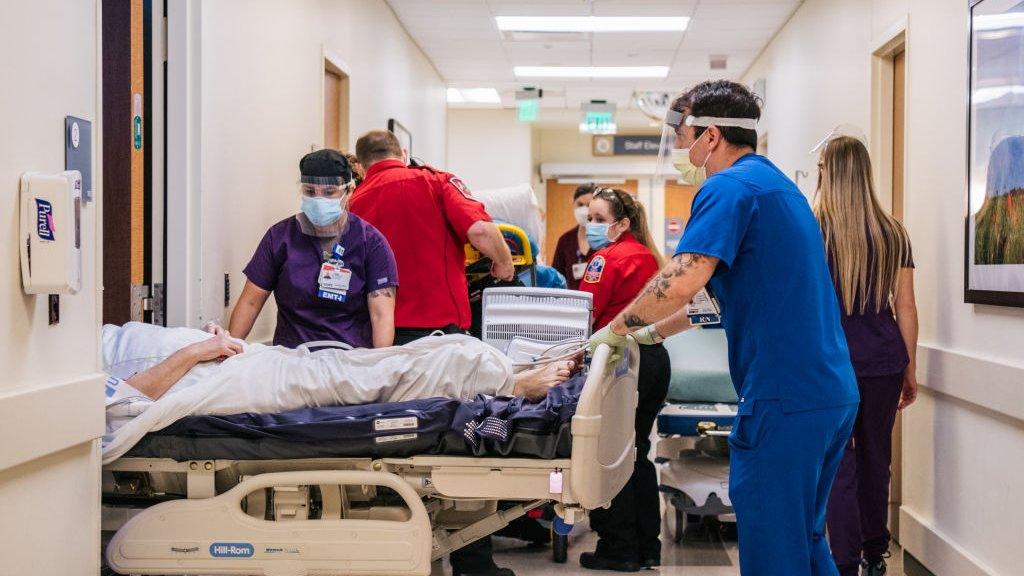
- Published30 August 2021
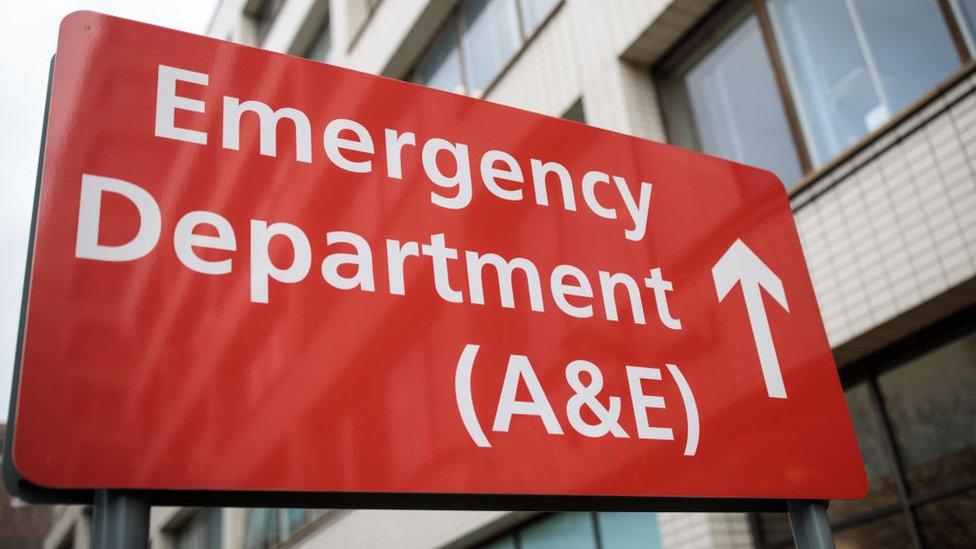
- Published19 October 2021
